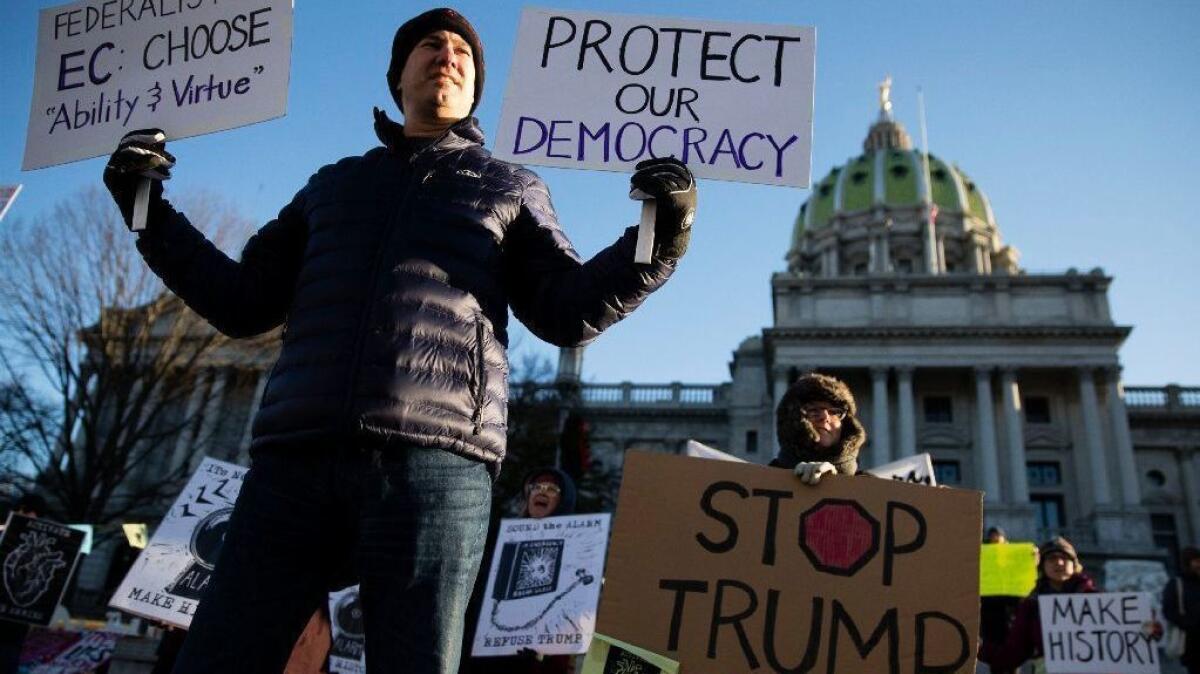Readers React: The American exceptionalism argument for preserving the electoral college

- Share via
To the editor: Those like historian Joseph J. Ellis who call for ending the electoral college or suggest end runs around it overlook the highly negative consequences of their position.
If we had direct election of the president, candidates would only have to win in enough of the largest metropolitan areas to win a majority of nationwide votes. This pattern would strengthen as urbanization continues.
Ellis is correct that no other nation in the world has adopted an electoral college. Well, no other nation shares our combination of traits. We consist of a very large geographic area with great variety of natural resources and local economies; a very large, non-homogeneous population; and a system in which governing powers are distributed between the federal government and 50 states.
The electoral college forces presidential candidates to appeal to a broad swath of the country. Without it, the urban-rural divide would grow even larger.
Patricia Hart, Aliso Viejo
..
To the editor: I agree with Ellis that we need to get around the electoral college. The concept of “one person, one vote” is shattered by the way we elect presidents.
States can cooperate to fix the problem. They have complete power over how their electors are allocated. Currently, most states assign electors to the candidate winning the most votes in that state, effectively disenfranchising those who voted for someone else.
By joining the National Popular Vote Interstate Compact, a state agrees to allocate its electors to the candidate getting the most votes nationwide. Once enough states have joined to cross the 270 electoral vote threshold needed to win an election, the compact will have achieved its goal.
Currently, 12 states possessing 172 electoral votes have joined. When the compact reaches its goal, every vote in every state and the District of Columbia will count equally.
Carole Bradley, Altadena
..
To the editor: President Trump won the cumulative popular vote of 49 states by 1.4 million votes over Hillary Clinton in 2016. However, Clinton carried California by more than 4.2 million votes, resulting in a nationwide margin of 2.8 million in her favor.
Without the electoral college, the largest state would have decided the 2016 election. Small states’ fear of such dominating influence of the large states led to the constitutional creation of the Senate and the electoral college.
Without those two bodies, some states would indeed have the power of certain California counties that have as many or more people than they do.
Darrill Andries, Lake Elsinore
Follow the Opinion section on Twitter @latimesopinion and Facebook
More to Read
A cure for the common opinion
Get thought-provoking perspectives with our weekly newsletter.
You may occasionally receive promotional content from the Los Angeles Times.









